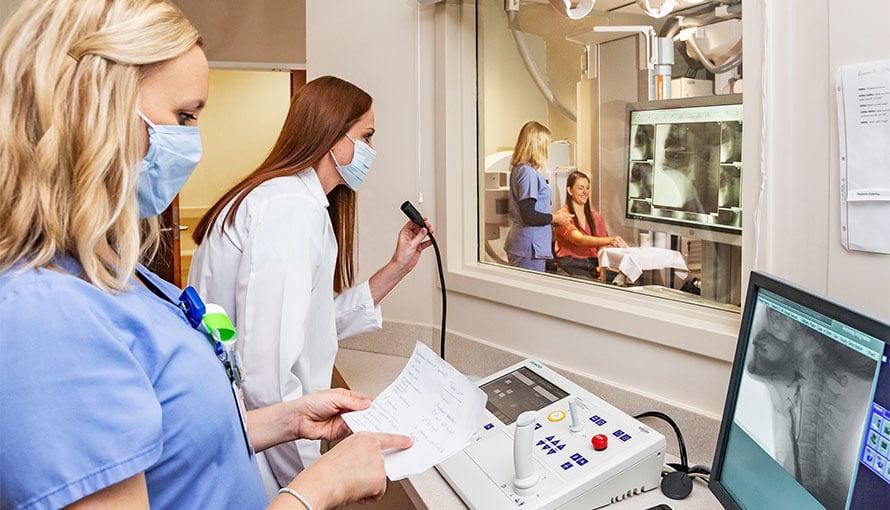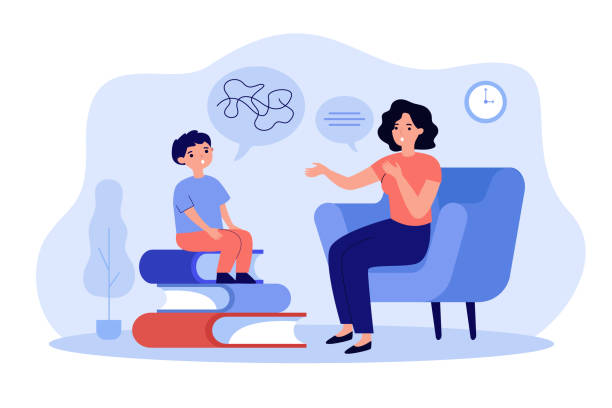How a Speech Pathologist Works with Schools to Enhance Student Outcomes
How a Speech Pathologist Works with Schools to Enhance Student Outcomes
Blog Article
How a Speech Pathologist Can Help Improve Communication Abilities
Efficient communication is a cornerstone of individual and expert success, yet many individuals face obstacles that prevent their ability to share themselves plainly. A speech pathologist is equipped to attend to these barriers with targeted analysis and treatment methods tailored per individual's requirements. By using evidence-based therapeutic strategies, they not only work to improve speech and language conditions but also improve total communicative capability. Comprehending the multifaceted duty of a speech pathologist discloses how their know-how can transform lives, welcoming a better evaluation of the certain methods and end results connected with their method.
Understanding Communication Problems
Recognizing interaction disorders is necessary for identifying how they affect people' capacity to express themselves and engage with others. Interaction problems incorporate a vast range of difficulties that impact speech, language, and social interaction, often impeding effective interaction. These conditions can arise from different variables, consisting of neurological conditions, developmental hold-ups, physical problems, or mental issues.
Speech conditions might materialize as difficulties in articulation, fluency, or voice production, influencing how words are obvious or spoken. Language conditions, on the other hand, involve obstacles in understanding or utilizing language, which can impede both verbal and non-verbal interaction. Social communication disorders are characterized by difficulties in the pragmatic aspects of interaction, such as taking kip down discussion or understanding social hints.
The consequences of communication conditions are profound, affecting not just the individual's ability to convey thoughts and emotions yet additionally their social connections, instructional opportunities, and general high quality of life. Understanding of these conditions can cultivate compassion and assistance, motivating effective strategies for interaction and engagement. Understanding the complexities of interaction disorders is a critical step in the direction of promoting inclusivity and dealing with the requirements of those affected.
Duty of a Speech Pathologist
Speech pathologists frequently play a vital duty in detecting and dealing with interaction conditions, employing a range of evidence-based techniques customized to each individual's demands. These experts deal with people across the lifespan, from youngsters with speech hold-ups to adults recouping from strokes or distressing brain injuries. Their knowledge includes a variety of interaction problems, including expression, language, voice, and fluency conditions.
In therapeutic setups, speech pathologists utilize organized interventions designed to improve communication abilities. They might carry out strategies such as speech workouts, language video games, and social communication training to promote enhancements in responsive and meaningful language capabilities. Speech Pathologist. In addition, they educate clients and their family members about efficient interaction techniques and flexible approaches to navigate daily communications
Beyond straight therapy, speech pathologists work together with various other healthcare experts, caretakers, and instructors to make certain an extensive technique to therapy. They support for clients by offering resources and support, making it possible for individuals to attain their interaction objectives and boost their overall quality of life. As professionals in the area, speech pathologists are crucial in cultivating reliable interaction, promoting independence, and enhancing social involvement for those with communication difficulties.
Assessment and Diagnosis Refine
The analysis and diagnosis process carried out by speech pathologists normally entails a thorough assessment to determine communication disorders accurately. This process starts with a detailed case background, where the medical professional gathers important info regarding the individual's medical, instructional, and developing background. Comprehending the context of the individual's communication difficulties is important for an accurate medical diagnosis.
Adhering to the medical history, speech pathologists utilize casual evaluations and standard examinations to examine different aspects of interaction, including speech sound manufacturing, language understanding, expressive language, and social interaction skills. These assessments are customized to the individual's age and specific worries, offering valuable information for analysis.
Monitoring is likewise a crucial part of the evaluation process, as it enables the clinician to see direct exactly how the specific interacts in all-natural settings. In addition, interviews with member of the family and instructors can provide understanding right into the individual's interaction challenges throughout different atmospheres.
As soon as the analysis is total, the speech pathologist manufactures the findings to figure out a diagnosis and suggest ideal interventions. This detailed assessment procedure ensures that people obtain targeted support tailored to their one-of-a-kind communication requirements, laying the structure for reliable therapeutic strategies.
Restorative Strategies and Techniques
Many healing techniques and techniques are used by speech pathologists to resolve a variety of interaction disorders efficiently. One commonly made use of approach is expression therapy, which concentrates on fixing speech seems via repetition and visual hints. This strategy is specifically beneficial for individuals with speech sound conditions.
One more efficient technique is language treatment, which improves both meaningful and responsive language abilities. This might include interactive tasks that advertise vocabulary development, syntax understanding, and conversational skills. Furthermore, speech pathologists typically utilize social skills training to improve pragmatic language abilities, allowing people to navigate social interactions much more successfully.
Fluency shaping and stuttering modification techniques are especially made to aid those experiencing fluency conditions. These approaches help customers establish smoother speech patterns and take care of the psychological and physical parts of stuttering.
In addition, augmentative and different communication (AAC) systems are employed for people with extreme communication impairments. These systems, which can consist of motions, signs, or electronic tools, give necessary support for effective interaction.
Benefits of Speech Treatment

Additionally, speech treatment can help in developing vital listening and understanding abilities, promoting much better communication in conversations. Individuals with cognitive-communication problems can likewise benefit, as treatment concentrates on enhancing memory and problem-solving capacities, necessary for efficient communication.
An additional important aspect is the psychological assistance provided throughout therapy sessions. Speech pathologists develop a risk-free environment, motivating patients to get over stress and anxiety and aggravation related to their interaction issues. This assistance can lead to enhanced self-esteem and general mental wellness.
Moreover, very early intervention with speech treatment can avoid more issues, ensuring that individuals reach their complete communicative potential. Generally, the benefits of speech treatment extend past mere speech renovation, positively impacting numerous dimensions of life for those impacted by interaction difficulties.
Final Thought
In recap, go to my blog speech pathologists play a critical function in resolving communication conditions via assessment, diagnosis, and tailored healing treatments. By employing evidence-based methods, these professionals boost people' speech and language abilities, cultivating boosted clarity, fluency, and social interaction skills. The advantages of very early intervention highlight the significance of looking for assistance from speech pathologists, as their experience can considerably improve communicative capacity, inevitably bring about better success in both professional and personal spheres.

Speech pathologists often play an important duty in diagnosing and treating communication disorders, utilizing an array of evidence-based reference strategies tailored to each individual's requirements. As specialists in the area, speech pathologists are vital in cultivating effective communication, promoting self-reliance, and improving social engagement for those with interaction obstacles.

Report this page